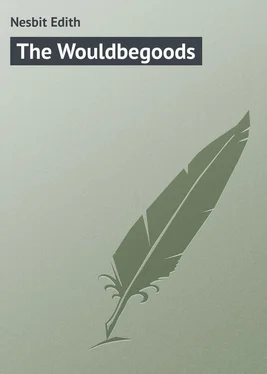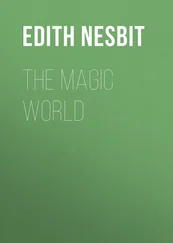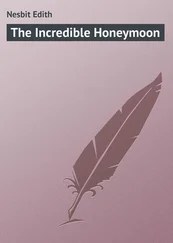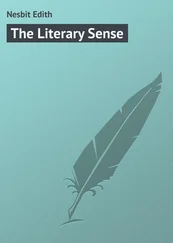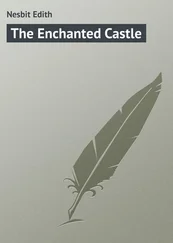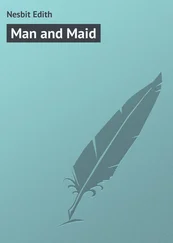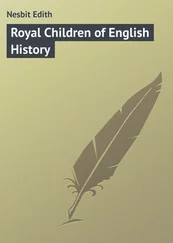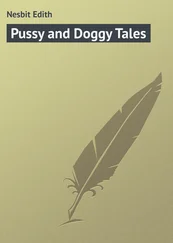Edith Nesbit - The Wouldbegoods
Здесь есть возможность читать онлайн «Edith Nesbit - The Wouldbegoods» — ознакомительный отрывок электронной книги совершенно бесплатно, а после прочтения отрывка купить полную версию. В некоторых случаях можно слушать аудио, скачать через торрент в формате fb2 и присутствует краткое содержание. Жанр: Прочие приключения, foreign_prose, на английском языке. Описание произведения, (предисловие) а так же отзывы посетителей доступны на портале библиотеки ЛибКат.
- Название:The Wouldbegoods
- Автор:
- Жанр:
- Год:неизвестен
- ISBN:нет данных
- Рейтинг книги:5 / 5. Голосов: 1
-
Избранное:Добавить в избранное
- Отзывы:
-
Ваша оценка:
- 100
- 1
- 2
- 3
- 4
- 5
The Wouldbegoods: краткое содержание, описание и аннотация
Предлагаем к чтению аннотацию, описание, краткое содержание или предисловие (зависит от того, что написал сам автор книги «The Wouldbegoods»). Если вы не нашли необходимую информацию о книге — напишите в комментариях, мы постараемся отыскать её.
The Wouldbegoods — читать онлайн ознакомительный отрывок
Ниже представлен текст книги, разбитый по страницам. Система сохранения места последней прочитанной страницы, позволяет с удобством читать онлайн бесплатно книгу «The Wouldbegoods», без необходимости каждый раз заново искать на чём Вы остановились. Поставьте закладку, и сможете в любой момент перейти на страницу, на которой закончили чтение.
Интервал:
Закладка:
"You wicked, meddlesome, nasty children!" she said, "ain't you got enough of your own good ground to runch up and spoil but you must come into my little lot?"
Some of us were deeply alarmed, but we stood firm.
"We have only been weeding your garden," Dora said; "we wanted to do something to help you."
"Dratted little busybodies," she said. It was indeed hard, but every one in Kent says "dratted" when they are cross. "It's my turnips," she went on, "you've hoed up, and my cabbages. My turnips that my boy sowed afore he went. There, get along with you, do, afore I come at you with my broom-handle."
She did come at us with her broom-handle as she spoke, and even the boldest turned and fled. Oswald was even the boldest.
"They looked like weeds right enough," he said.
And Dicky said, "It all comes of trying to do golden deeds."
This was when we were out in the road.
As we went along, in a silence full of gloomy remorse, we met the postman. He said:
"Here's the letters for the Moat," and passed on hastily. He was a bit late.
When we came to look through the letters, which were nearly all for Albert's uncle, we found there was a post-card that had got stuck in a magazine wrapper. Alice pulled it out. It was addressed to Mrs. Simpkins. We honorably only looked at the address, although it is allowed by the rules of honorableness to read post-cards that come to your house if you like, even if they are not for you.
After a heated discussion, Alice and Oswald said they were not afraid, whoever was, and they retraced their steps, Alice holding the post-card right way up, so that we should not look at the lettery part of it, but only the address.
With quickly beating heart, but outwardly unmoved, they walked up to the white cottage door.
It opened with a bang when we knocked.
"Well?" Mrs. Simpkins said, and I think she said it what people in books call "sourly."
Oswald said, "We are very, very sorry we spoiled your turnips, and we will ask my father to try and make it up to you some other way."
She muttered something about not wanting to be beholden to anybody.
"We came back," Oswald went on, with his always unruffled politeness, "because the postman gave us a post-card in mistake with our letters, and it is addressed to you."
"We haven't read it," Alice said, quickly. I think she needn't have said that. Of course we hadn't. But perhaps girls know better than we do what women are likely to think you capable of.
The soldier's mother took the post-card (she snatched it really, but "took" is a kinder word, considering everything) and she looked at the address a long time. Then she turned it over and read what was on the back. Then she drew her breath in as far as it would go, and caught hold of the door-post. Her face got awful. It was like the wax face of a dead king I saw once at Madame Tussaud's.
Alice understood. She caught hold of the soldier's mother's hand and said:
"Oh no – it's not your boy Bill!"
And the woman said nothing, but shoved the post-card into Alice's hand, and we both read it – and it was her boy Bill.
Alice gave her back the card. She had held on to the woman's hand all the time, and now she squeezed the hand, and held it against her face. But she could not say a word because she was crying so. The soldier's mother took the card again and she pushed Alice away, but it was not an unkind push, and she went in and shut the door; and as Alice and Oswald went down the road Oswald looked back, and one of the windows of the cottage had a white blind. Afterwards the other windows had too. There were no blinds really to the cottage. It was aprons and things she had pinned up.
Alice cried most the morning, and so did the other girls. We wanted to do something for the soldier's mother, but you can do nothing when people's sons are shot. It is the most dreadful thing to want to do something for people who are unhappy, and not to know what to do.
It was Noël who thought of what we could do at last.
He said, "I suppose they don't put up tombstones to soldiers when they die in war. But there – I mean – "
Oswald said, "Of course not."
Noël said, "I dare say you'll think it's silly, but I don't care. Don't you think she'd like it if we put one up to him ? Not in the church-yard, of course, because we shouldn't be let, but in our garden, just where it joins on to the church-yard?"
And we all thought it was a first-rate idea.
This is what we meant to put on the tombstone:
Then we remembered that poor, brave Bill was really buried far away in the Southern hemisphere, if at all.
So we altered it to —
"A soldier brave
We weep for here."
Then we looked out a nice flagstone in the stable-yard, and we got a cold-chisel out of the dentist's tool-box, and began.
But stone-cutting is difficult and dangerous work.
Oswald went at it a bit, but he chipped his thumb, and it bled so he had to chuck it. Then Dicky tried, and then Denny, but Dicky hammered his finger, and Denny took all day over every stroke, so that by tea-time we had only done the H, and about half the E – and the E was awfully crooked. Oswald chipped his thumb over the H.
We looked at it the next morning, and even the most sanguinary of us saw that it was a hopeless task.
Then Denny said, "Why not wood and paint?" and he showed us how. We got a board and two stumps from the carpenter's in the village, and we painted it all white, and when that was dry Denny did the words on it.
It was something like this:
We could not get in what we meant to at first, so we had to give up the poetry.
We fixed it up when it was dry. We had to dig jolly deep to get the posts to stand up, but the gardener helped us.
Then the girls made wreaths of white flowers, roses and canterbury bells, and lilies and pinks, and sweet pease and daisies, and put them over the posts, like you see in the picture. And I think if Bill Simpkins had known how sorry we were, he would have been glad. Oswald only hopes if he falls on the wild battle-field, which is his highest ambition, that somebody will be as sorry about him as he was about Bill, that's all!
When all was done, and what flowers there were over from the wreaths scattered under the tombstone between the posts, we wrote a letter to Mrs. Simpkins, and said:
"Dear Mrs. Simpkins, – We are very, very sorry about the turnips and things, and we beg your pardon humbly. We have put up a tombstone to your brave son."
And we signed our names.
Alice took the letter.
The soldier's mother read it, and said something about our oughting to know better than to make fun of people's troubles with our tombstones and tomfoolery.
Alice told me she could not help crying.
She said:
"It's not ! it's not! Dear, dear Mrs. Simpkins, do come with me and see! You don't know how sorry we are about Bill. Do come and see. We can go through the church-yard, and the others have all gone in, so as to leave it quiet for you. Do come."
And Mrs. Simpkins did. And when she read what we had put up, and Alice told her the verse we had not had room for, she leaned against the wall by the grave – I mean the tombstone – and Alice hugged her, and they both cried bitterly. The poor soldier's mother was very, very pleased. And she forgave us about the turnips, and we were friends after that, but she always liked Alice the best. A great many people do, somehow.
Читать дальшеИнтервал:
Закладка:
Похожие книги на «The Wouldbegoods»
Представляем Вашему вниманию похожие книги на «The Wouldbegoods» списком для выбора. Мы отобрали схожую по названию и смыслу литературу в надежде предоставить читателям больше вариантов отыскать новые, интересные, ещё непрочитанные произведения.
Обсуждение, отзывы о книге «The Wouldbegoods» и просто собственные мнения читателей. Оставьте ваши комментарии, напишите, что Вы думаете о произведении, его смысле или главных героях. Укажите что конкретно понравилось, а что нет, и почему Вы так считаете.
